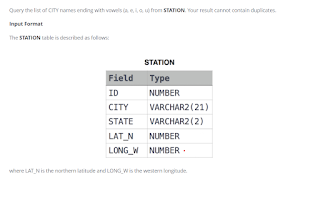Future interface in java
Implementation of Future with thread
public class FutureWithThread {
private ExecutorService executor
= Executors.newFixedThreadPool(20);
public Future<Integer> makeDouble(Integer num){
return executor.submit(()->{
Thread.sleep(100);
return num * num;
});
}
}
The interface provides the following four methods:
- get(): the method waits for the computation to complete the async operation and waits to retrieve its result.
- cancel(): suppose in case we want to stop the execution and we can use the future.cancel(true) to tell the executor service to stop the current operation and interrupt the current thread. if we call get() after cancel() then it will throw CancleException. future. isCancelled () will tell us if the execution is canceled or not. this will help to avoid CancleException.
- isCancelled() : tell us if the execution is canceled or not. if execution is canceled then it will return true otherwise it will return false.
- isDone(): tell us if execution has been done or not. if execution is done then it will return true otherwise it will return false.
Future<Integer> future = new FutureWithThread().makeDouble(number);
while (future.isDone()){
log.info("in-progress");
}
Integer doubleNumber = future.get();
List<Future> futures = new ArrayList<>();
List<Future<Integer>> collect = IntStream.range(0, number).boxed().map(m -> {
return new FutureWithThread().makeDouble(m);
}).collect(Collectors.toList());
return collect.stream().map(m->{
try {
return m.get();
} catch (InterruptedException | ExecutionException e) {
throw new RuntimeException(e);
}
}).collect(Collectors.toList());
Future<Integer> integerFuture = new FutureWithThread().makeDouble(number);
integerFuture.cancel(true);
if(integerFuture.isCancelled()){
log.info("Current operation is cancelled");
}
It cannot be manually completed :
Let’s say that you’ve written a function to fetch the latest price of an e-commerce product from a remote API. Since this API call is time-consuming, you’re running it in a separate thread and returning a Future from your function.
Now, let’s say that If the remote API service is down, then you want to complete the Future manually by the last cached price of the product.
Can you do this with Future? No!
You cannot perform further action on a Future’s result without blocking:
Future does not notify you of its completion. It provides a
get()method that blocks until the result is available.You don’t have the ability to attach a callback function to the Future and have it get called automatically when the Future’s result is available.
Multiple Futures cannot be chained together :
Sometimes you need to execute a long-running computation and when the computation is done, you need to send its result to another long-running computation, and so on.
You can not create such an asynchronous workflow with Futures.
You can not combine multiple Futures together :
Let’s say that you have 10 different Futures that you want to run in parallel and then run some functions after all of them are complete. You can’t do this as well with Future.
No Exception Handling :
Future API does not have any exception-handling construct.

Comments
Post a Comment